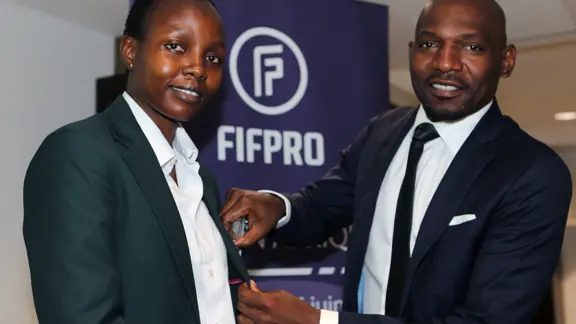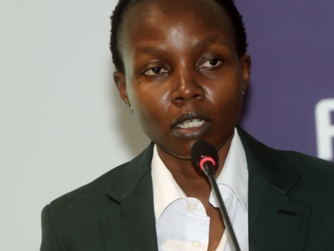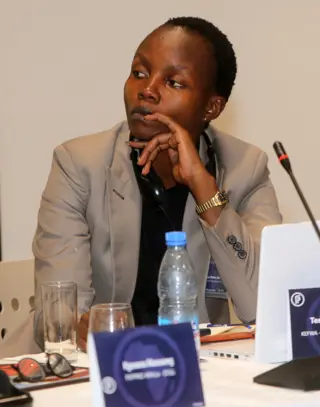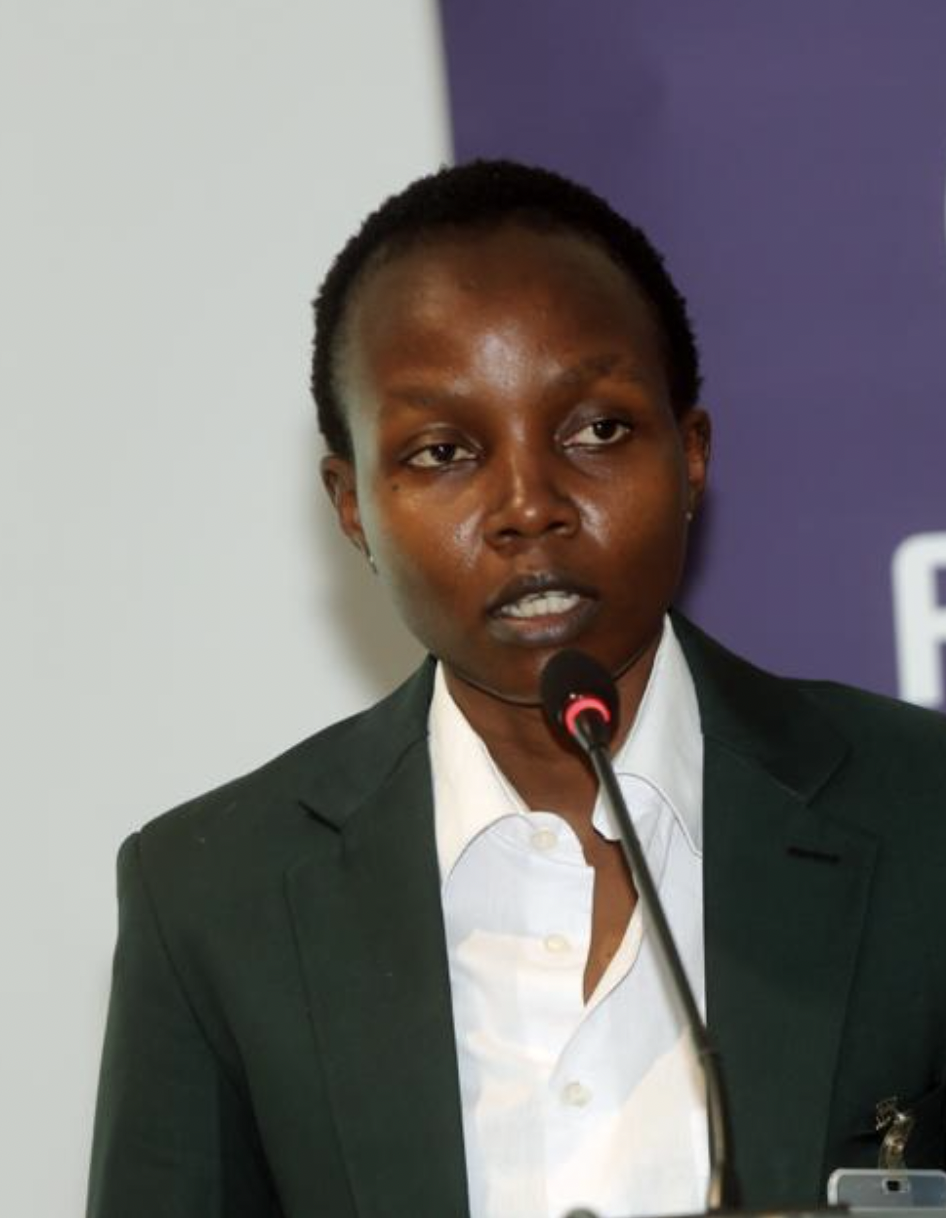News
Teresa Calleb: "I like championing our players’ rights"

Teresa Calleb
Former Kenya captain Teresa Calleb was elected to the board of FIFPRO Division Africa in June.

My football journey began in school, but I was not able to join a club until I completed high school in 2007. One day I met a former schoolmate who took me to Coastal Queens. I played barefoot since I did not have proper playing kits, and I remember the excitement. I was signed immediately and my football career took off.
After one season I joined a top club: Spedag FC. Soon after I was called up to the Kenya Under-20 national team ahead of World Cup qualifiers and I was also selected to join the National Youth Talent Academy (NYTA) which was a project run by the Ministry of Sports in partnership with UNICEF.
It was going great, but my family was worried if I would be able to strike a balance between education and football. I studied journalism and started writing sports articles while playing to earn extra income.
I was a consistent member of Kenya's senior national team from 2009 to 2016, except for 2013 when I took a maternity break. I resumed towards the end of 2014. During that period, I was employed both as a digital journalist and a data clerk at a security firm, which required a high level of discipline.
My football career might not have involved playing professionally away from the domestic league, but it acted as a stepping stone to acquiring numerous opportunities – both capacity-building activities and employment opportunities.

I have always been the player who leads on and off the field. I captained all teams I played for, including the national team. I may not have been the most talented, but I was always the most industrious. This earned me the nickname “Puyol” from my coach.
What stood out in how I relate with my team-mates, is that they always counted on me to voice our concerns, and to give them group counselling since I am a trained psychologist.
My coach once told me to stop being an activist and just play football. However hard I tried, my mouth either offered a solution or got me in trouble; be it suggestions on how we can be motivated or raising concerns on what should be improved.
I liked championing our rights and encouraging my team-mates to take courses or even invest their allowances in a business while we were still active, after I realised women's football was in its developmental stage in our country and it would take a while to fully rely on it in terms of proper earnings.
I joined player union KEFWA in 2015. I am the Communications Manager and the Head of Women's Football. I play both roles effortlessly because I am a trained Communications Development expert, and I have experience in women's football matters.
CONGRATULATIONS! to our Head of Women Football Terry Ouko on being appointed to @FIFProAfrica as a Board Member.
— KEFWA (@kefwaofficial) June 15, 2022
We hope her exquisite experience in football management will propel us to higher levels across the continent. pic.twitter.com/csrpqBcTOI
I have also been involved in other organisations such as the German Corporation Sport for Development in Africa, and NGOs like Moving The Goalposts where I gained experience in strategic outcomes project management.
Joining the FIFPRO Africa board was a blessing and a dream come true. When this opportunity presented itself, I was thrilled because I have always yearned to serve especially at a capacity that goes beyond our borders.
This presents an opportunity for growth and learning, besides being able to share my ideas and implementing my assigned roles which I am happy to undertake. I believe the experience and expertise I have gathered over the years dealing with both genders will offer a springboard that will enable me to perform assigned tasks with ease.
It will also allow me to identify gaps and opportunities that can be explored in women's football in Africa. I have realised that players’ literacy is still below par.
Some would be playing professional and not get salaries for months, but they do not have a clue where to seek legal representation without incurring huge costs for instance. I see more women embracing the idea of joining unions if we can continue with awareness creation and sensitisation programs.
Team visits at the CAF Women's Africa Cup of Nations (WAFCON) MOROCCO 2022.
— Terry Ouko (@terry_ouko) July 9, 2022
A super interactive session with the @CrestedCranes of Uganda aimed at creating awareness on FIFPRO -world professional footballers' Union's programs and services offered to players. #WAFCON2022 pic.twitter.com/sdPhJWX0TD
I am part of a network of former and current footballers as well as journalists that cover women’s football in Africa, which I believe will be beneficial in terms of collecting feedback to improve the women’s game which is scaling to greater heights at the moment.
The 2022 Women Africa Cup of Nations (WAFCON) gave a clear picture of how football has evolved going by its level of competitiveness. African players are now exposed and have had opportunities to play professional football in other continents and it will be a game changer if women’s leagues in Africa are professionalised.
Additionally, players unions are now working closely with football associations in terms of negotiating minimum wage and standard contracts, which will soon be big on the women’s side given the opportunities and visibility platforms potential sponsors are set to enjoy in the continental club competitions.
The main obstacle for the women’s game is proper marketing and resource mobilisation. It has been argued for the longest time that women’s football does not pull enough crowds, but going by the records set during the WAFCON 2022, if it is properly tapped, then things will change for the better.
